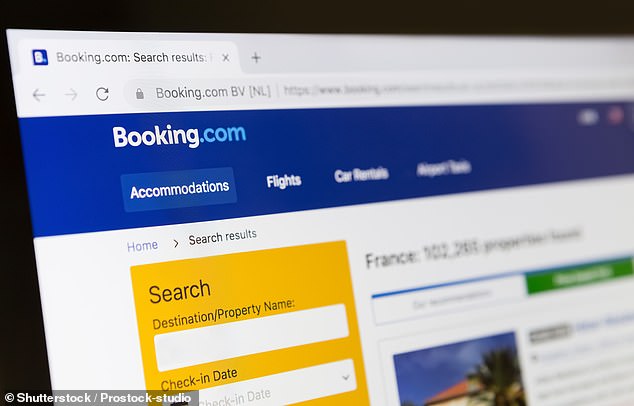Booking.com has replaced its customer service staff with artificial intelligence (AI), meaning scam victims are now forced to report fraud experiences to a chatbot.
Last year, the hotel booking site announced plans to slash staff numbers and let AI take over large parts of its customer service.
Following that, according to the makers of a Belgian consumer affairs programme, WinWin, some staff at Booking.com complained about falling standards of customer service.
WinWin claimed that Booking.com had first outsourced customer service to a third-party company based in Luxembourg and was now cutting several hundred people.
It appears that Booking.com’s plan is for most standard questions to initially be answered by AI.
But consumer group Which? has claimed it receives weekly reports from customers of the hotel giant, who say they’ve been scammed.
One holidaymaker revealed she was defrauded out of €2,025 (£1,759) by an alarmingly convincing scam on Booking.com.
She called the booking site’s helpline and was answered by an American voice, calling itself ‘Kayleigh, your AI-powered agent’.

One holidaymaker revealed that she was defrauded out of €2,025 (£1,759.83) by an alarmingly convincing scam on Booking.com (stock image)
She tried explaining the complicated fraud, but got nowhere.
‘I went round and round in circles,’ she said. ‘Having stated that I believed I was subject to a scam and there was a fraudulent listing on their website, the bot suggested I report the listing through the website or app.’
Weeks after she reported the fraud, she still hadn’t received any further news on what was happening with her case.
It’s an experience that will be familiar to the many people who have been defrauded on the site.
She had initially attempted to book a Swiss chalet on the site but received a message saying her booking had been declined. Shortly afterwards, she received another message, again from Booking.com’s own email address, telling her to ‘please contact the host for availability’.
She was then sent a link to pay. It was only when she compared the photos that she’d been sent with the real chalet that she became suspicious.
She contacted her bank but found out that, as it was an international payment, she would not benefit from new rules around so-called authorised push payments.
Her case was complicated by the fact that, unlike with other similar scams, she doesn’t have a booking reference.

It appears that Booking.com’s plan is for most standard questions to initially be answered by AI

Which? advises users of Booking.com to be careful when using the site, as their survey found the Booking.com messaging system is frequently hacked
The fraudsters got her email address by hacking Booking.com’s mailing system – presumably via the chalet she emailed – and were able to direct her outside of the platform.
It’s unsurprising that she – and many other people – have been tricked because some genuine Booking.com properties do request payment outside of the platform itself, unlike those on Airbnb, Expedia or other sites.
In August, Which? reported that almost one in 10 Booking.com customers said they’d seen scam emails.
Which? urges holidaymakers using Booking.com to be careful when using the site, as their survey found the Booking.com messaging system is frequently hacked.
This is because it allows accommodation partners – hotels or others – to access it directly.
Fraudsters only need to hack individual hotels or other third parties with access to the messaging system to be able to contact all their guests via the Booking.com app or the noreply@booking.com email address.
The Daily Mail has contacted Booking.com for comment.